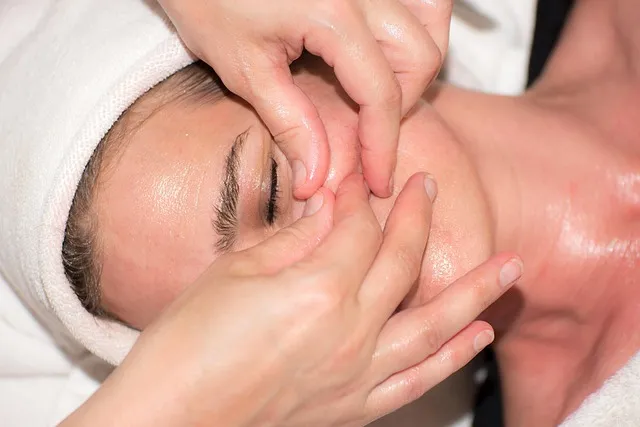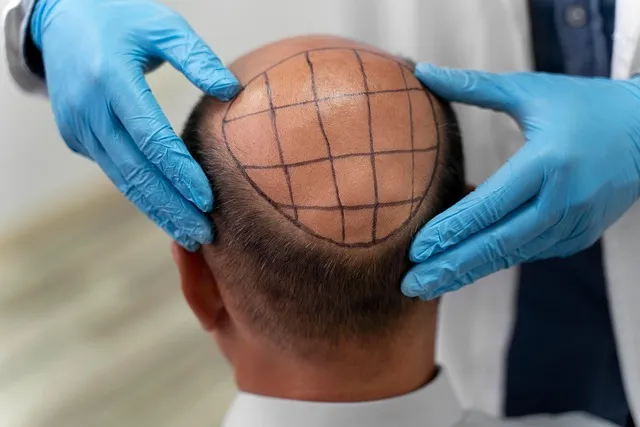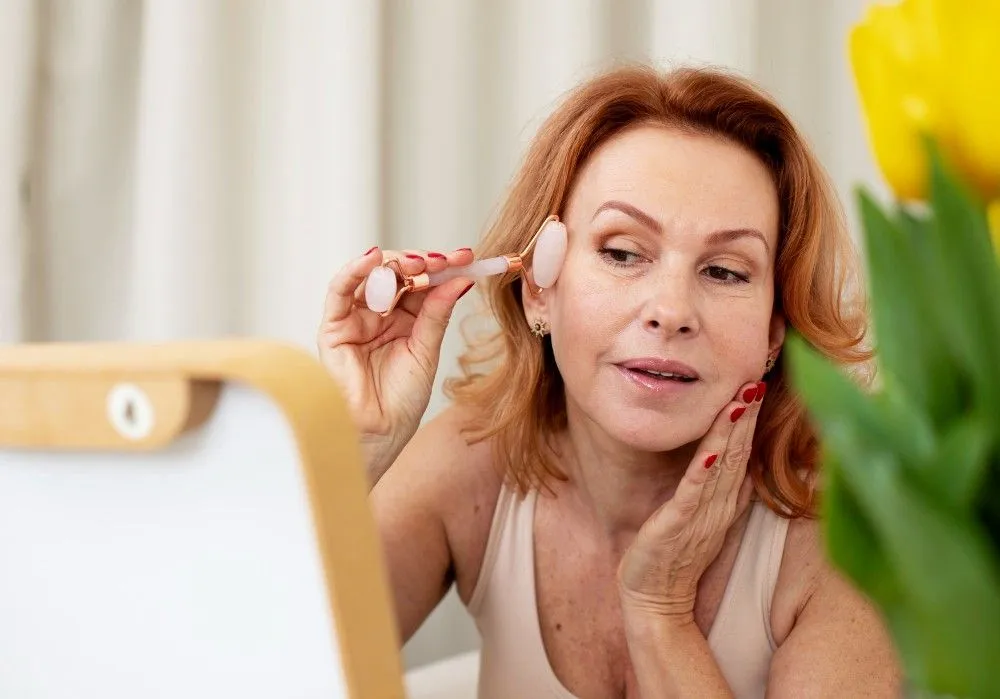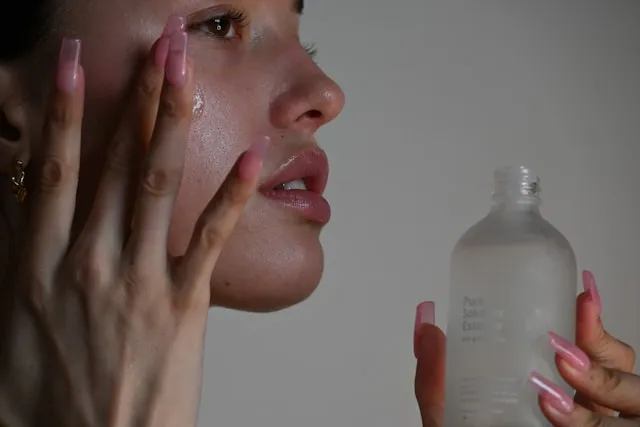Even if we shampoo frequently, our hair will become oily or greasy from time to time. This is because sebum, a natural hair protector and emollient, makes hair greasy. So, you're curious about how to fix oily hair. If your hair is particularly oily, after shampooing it each day and not applying any oil, it may produce too much oil, leading the scalp to get greasy. If you're asking how to get rid of oily hair naturally, check out a few simple solutions. While someone may be discouraged by their greasy locks, there are several natural therapies they can attempt to help them get rid of it. The grease is removed without depleting hair from its oils or aggravating the scalp.
Read Also: The 13 Best Supplements to Help Your Hair Grow Thicker & Stronger
How To Get Rid Of Oily Hair Fast?
There are several ways for how to get rid of oily hair in 5 minutes:
1 Wash your hair more frequently
Excessive oil that wasn't adequately eliminated might produce greasy hair. Some persons with oily hair might require washing their hair every day. Shampoo aids in the removal of excess oil. It will also eliminate any extra hair products and debris that has accumulated on the scalp and is causing the hair to look & feel oily. Flakes may appear in the hair if a person needs more shampoo. This might lead to dandruff as well as other scalp problems.
2 Wash your hair less regularly
Are you looking for how to get rid of oily hair without washing it? Some people may wash it too frequently. Washing your hair too frequently might remove it from its oils, prompting it to create even more oil. People who notice their hair becoming oily immediately after cleaning it, along with an itchy and irritated scalp, may want to try washing it less regularly. This may help to balance oil production while decreasing greasiness.
3 Shampoo properly
It may not appear rocket science, but washing your hair incorrectly can result in an oily scalp & damaged hair. To wash your hair effectively, carefully massage a small bit of shampoo between your roots or scalp. Use your nails sparingly and avoid causing extra stress on the strands. Scrubbing too hard might hurt your scalp and lead it to create additional oils. Concentrate on your scalp, which contains the oil, rather than the length of your hair. Do not scrub or apply shampoo to both ends of your hair. Instead, rinse with the shampoo flowing through the ends. And fortunately, for your money, you can avoid the "repeat" cleansing.
4 Use conditioner sparingly
Conditioners may lead oils to collect up quicker, contributing to the greasy appearance of a person's hair. Instead of conditioning the entire hair length, try only conditioning the ends to keep them drying out. After application, carefully rinse. Conditioning can make the hair look oily & cause oils to accumulate faster. Only condition the final section of your hair and thoroughly rinse.
5 Avoid silicone-containing products
Silicone is used in many products, like shampoos, conditioners, creams, plus styling treatments, to help smooth hair and give shine. Silicones, along with adding extra shine that can appear a lot like grease, may establish up on the scalp and make it look unclean, oily, and weighted down. The most prevalent silicones used in hair products are: dimethicone Cyclomethicone amdimethicone Silicones can also inhibit vital moisture from entering the hair shafts. Avoid any items with components ending in "-cone."
6 Try dry shampoos
In a pinch, dry shampoos can be a lifesaver. It can't replace a sudsy moist wash. However, it may dry up oils and make your hair look cleaner. Many dry shampoos include a smell to help you feel refreshed. The disadvantage is that dry shampoos leave residue, making the scalp and . It also dries out your hair, so use it sparingly and thoroughly rinse it out the next day to prevent irritation and damage.
How To Get Rid Of Oily Hair Without Dry Shampoo?
There are many ways that you can apply to have an oily-free scalp:
- Cornstarch or Baby Powder
- Baking Soda
- Apple Cider Vinegar Rinse
- Lemon Juice
- Aloe Vera
7 To moisturize or not moisturize
Use a lightweight conditioner if you have oily hair. The mild conditioner can replace and balance moisture on the head without overproducing it. Oily hair is frequently a consequence of the scalp's impulse to make more oil as the hair becomes dry from various products. A poor wash job can also cause oily hair after putting products on the hair during the washing process. To remove additional residue, consider conditioning first and shampooing second, or abandon your usual conditioner instead of a leave-in conditioner spray (on your ends only).
8 Make a hair-washing routine
Certain times of day, such as after an exercise or early morning, are better than others for washing hair. If you wash your hair at night, it may look greasy again in the morning. Going to a gym or exercising causes sweat, making a person's hair appear oily and unwashed. Wash your hair after using a cap, helmet, or headscarf is also a good idea. Covering the head generates heat, which causes the head to sweat and traps oils.
9 Experiment with hairstyles
While pulling the hair down may appear a good idea, it may trigger the natural oils on your scalp to travel more quickly. People who prefer to tie their hair up may let it down occasionally. If no other cures work to eliminate oil, a change in style may make anyone feel better regarding their hair. Indeed, greasy hair can complement some hairstyles, including a slicked-back topknot.
10 Clean the brush
A dirty brush should never be used on newly cleaned hair. Your brush may be clogged with styling chemicals, oils, and other crud that can cause your hair to become unclean quickly after washing. Clean your style tools with shampoo or light soap to remove buildup. Similarly, clean away the stray hair after each brushing to maintain the brush without oil and grime. A hairbrush should be cleaned regularly because it can gather up goods, dead skin, and other dirt. If the brush has not been washed, dirt and particles will enter the hair the next time it is used. This can make newly washed hair appear filthy and greasy again.
11 Apply witch hazel
Witch hazel may benefit people with how to get rid of naturally oily hair. It aids in the closure of the pores. A reliable source produces oil. Witch hazel may decrease irritation and inflammation while restoring the scalp's natural pH balance. It is also a gentle remedy for those with sensitive scalps. This solution is surprisingly effective for dirty hair. Witch hazel can help ease itching, shut oil-producing pore spaces, and reduce irritation caused by dandruff, a pH imbalance, and other scalp issues. It's also soft enough for delicate scalps.
12 Purchase the appropriate products
Numerous products on the market are specifically developed for greasy hair. Changing shampoos and applying ones with harsher detergent may assist in removing excess oil and leaving hair clean and healthy. People who wash their hair daily should know that harsher shampoos may irritate the scalp. As a result, folks who wash their hair daily may discover that mild baby shampoos are a preferable alternative.
Also Read: Botox hair treatment: procedure, benefits, and side-effects
Conclusion
People with oily hair may feel less confident about their looks. It can also make the scalp itchy and painful. Fortunately, there are numerous simple, natural solutions for oily hair. People must be conscious that the amount of oil their hair produces might fluctuate. Some people's hair may naturally get less oily as they age.

Reviewed by







